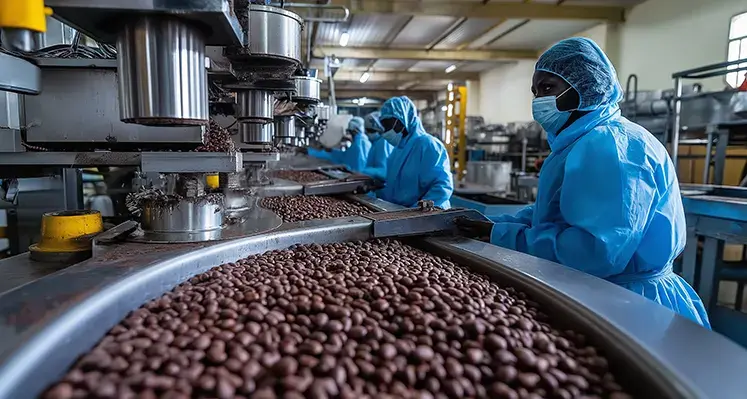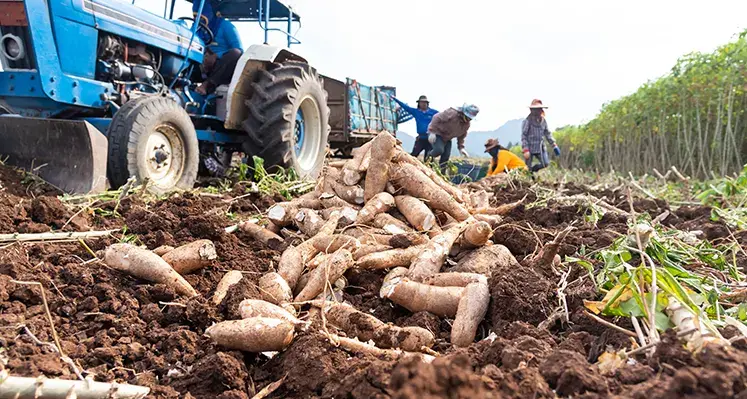
Africa Processing’s new Ngolambélé plant represents more than just an expansion of industrial capacity.
Africa Processing has marked a major milestone in Cameroon’s fast-growing cocoa processing sector with the inauguration of its second industrial cocoa-grinding plant, located in Ngolambélé in the Dimako district of the East Region.
This strategic expansion builds on the success of its first facility in Mbankomo, situated in the Centre Region, and strongly reinforces Cameroon’s push toward local value addition, industrial growth, and enhanced competitiveness in the global cocoa market.
Lisette Claudia Tame Djame, CEO highlighted the uniqueness and impact of the new plant. She stated, “this is the only processing unit for Cameroonian cocoa beans that simultaneously offers products for industry and products for direct consumption. We want to transform raw material where it is produced.” She also emphasised the untapped potential of the East Region, noting that the area can support up to 12,000 tonnes of annual cocoa production making it an ideal location for industrial investment as well as an important hub for distribution toward northern markets.
Africa Processing entered the cocoa-processing landscape during the 2022–2023 season. Its pioneering Mbankomo site has already become a significant contributor, generating CFA 500 million in annual turnover and producing an estimated 8,000 tonnes of cocoa derivatives each year. The launch of its Ngolambélé facility is expected to not only strengthen production capacity but also accelerate the company’s financial performance while supporting Cameroon’s broader vision of transforming more of its cocoa domestically.
With this new addition, Africa Processing joins an elite group of major cocoa-grinding players in the country, including SIC Cacaos (Barry Callebaut), Chococam (Tiger Brands), Atlantic Cocoa, and Neo Industry. This positions the company firmly within Cameroon’s expanding industrial base and adds healthy competition to a sector that continues to experience strong demand and rising global visibility.
The country’s cocoa-processing momentum has reached an impressive milestone. During the 2024–2025 season, Cameroon surpassed the 100,000-tonne threshold for domestic cocoa grinding for the very first time. This growth has intensified competition among processors for raw beans, contributing directly to improved farm-gate prices—peaking at a record CFA 6,300 per kilogram in the 2023–2024 season. Such gains have had a meaningful positive impact on farmers’ incomes and overall industry resilience.
Africa Processing’s new Ngolambélé plant represents more than just an expansion of industrial capacity; it reflects a shift toward sustainable agricultural transformation, enhanced export potential, and the rise of Cameroon as a key cocoa-processing hub in Africa. By focusing on localised value addition and processing at the source, the company is supporting national economic diversification while helping reposition Cameroon within the global cocoa value chain.








